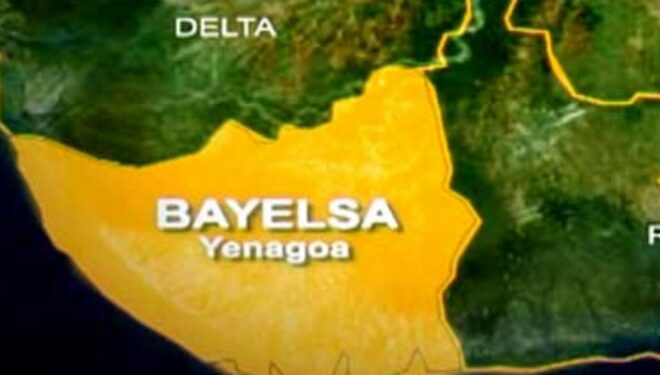For over six months, Muna Tarere, a passionate young teacher posted to the remote Community Secondary School in Trofani, Bayelsa State, has been teaching without pay. Despite the hardship, she continued her service with the hope that the state government would soon begin to pay salaries.
But just when she thought the long wait was about to end, she received the most shocking news – her employment had been suspended by the Bayelsa State Governor, Douye Diri, because the teachers’ recruitment was full of irregularities and did not comply with due process.
Speaking on the matter, chief press secretary, Daniel Alabrah, said the teachers’ recruitment no longer matched the government’s original plan. He explained that the goal was to employ teachers based on the real needs of schools and students, but the process didn’t follow that plan.
In response, the state government set up a special committee led by Hon. Irorodamie Komonibo to carry out a new recruitment process, beginning with a verification exercise which ended in June 2025.
Sadly, nothing serious has been done since then to bring back the affected teachers, many of whom were posted to hard-to-reach rural communities. These teachers worked for six months without receiving any salary, spent their money on transport and accommodation, and have remained jobless for nearly a year despite their sacrifices.
Like many others recruited under the state’s recent school employment scheme, Muna Tarere who teaches Physical and Health Education from JSS1 to JSS3, and Biology from SS1 to SS3, also received her appointment letter in January 2025, but with a retroactive employment date of September 1, 2024.
“I’m not really worried about the salary because I saw it as a pensionable job,” she said in a soft but determined voice during an interview. “But we’ve not received even N5 since we started in September. Everything we’ve done for these children, from transportation to classroom materials, we funded with our personal money.”
She said many of the newly posted teachers were placed in remote villages like Esekenike and other difficult terrains under Sagbama LGA. Some spent as much as N8,000 daily on transport to access their schools, believing their efforts would be rewarded in due time. “In December, we were hopeful they would pay us at least for the three months we had worked, but nothing came,” she said.
Muna was not only committed in the classroom but went beyond teaching. Upon her arrival at Trofani, she noticed the students were poorly motivated and often absent. “Before I got there, no teacher came early enough to conduct morning devotion. I made sure I got to school by 7am. I even rented a house close to the school with my money because there was no accommodation provided.”
Her dedication paid off. Student attendance began to improve. “Before, you’d barely see five students by 8am, but with time they began coming early and stopped going home after break. Some NGOs that came were impressed by the improvement and donated more learning materials.”
But just when things were turning around, news of the employment suspension came. “I was on my way to Onitsha to buy sportswear for our inter-house sports event when I got a call from a colleague, who told me our employment had been cancelled.
“I was shocked. I wasn’t myself throughout that journey to Onitsha. The parents really felt bad that our employment was suspended. They saw the difference our presence made in the lives of their children,” she said.
For Muna and others like her who are passionate about their job, the suspension of their employment was more than a policy shift- it was indeed a heartbreak. They continue to hope that the state government will reinstate, reconsider and reward their sacrifices.





